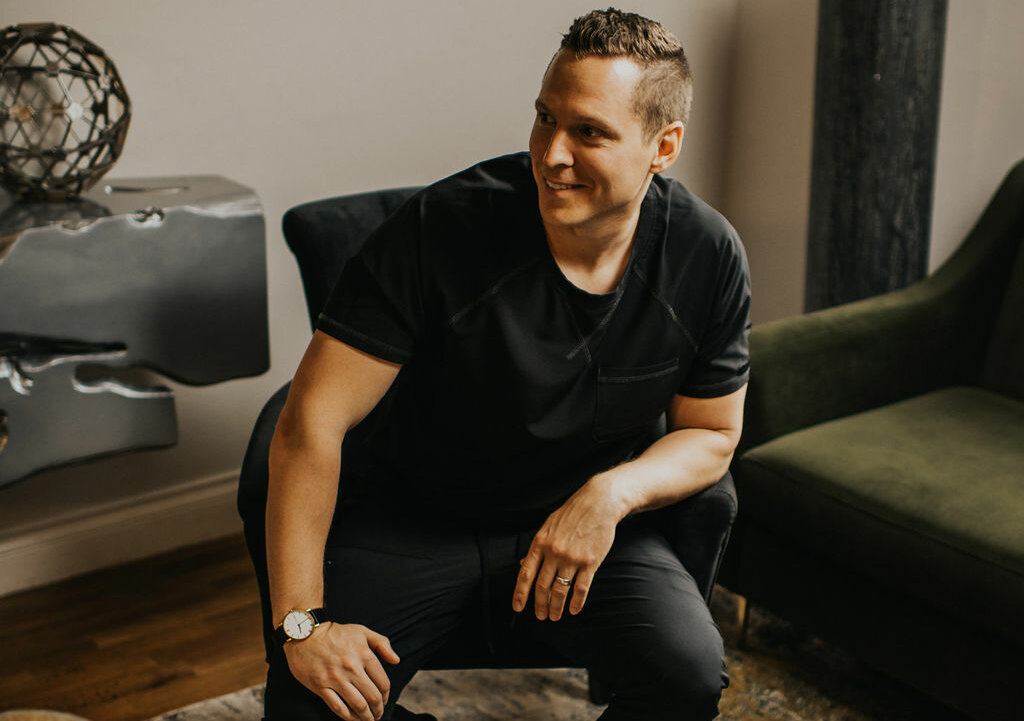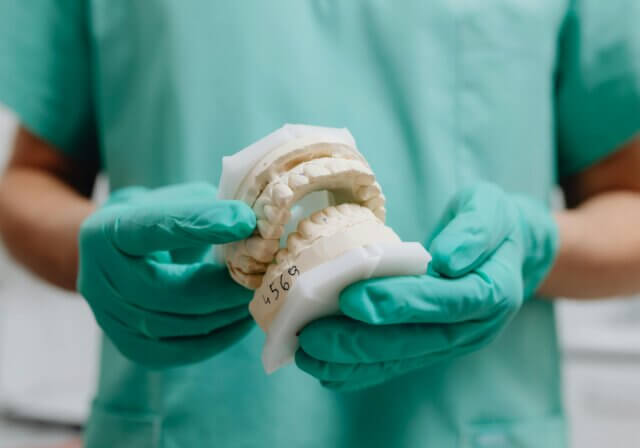Did you know dental implants are the only permanent tooth replacement option available today?
Dental implants can bring relief and rejuvenated confidence to your smile if you’re living with the pain, discomfort, and distress that come with missing teeth.
Using a titanium or ceramic post implanted in the jawbone to anchor a custom single-tooth or multi-tooth restoration, dental implants create natural-looking, long-lasting results that feel and function like real teeth.
But if you’re considering a dental implant or multiple implants in your oral health journey, you probably have questions like:
“Should I get a dental implant?” “What’s the average price of a dental implant?” “What types of dental implants are there?”
These are among the most common queries we get from prospective patients. And I’ll answer this by doing what my mother always said not to do (sorry, mom); answering a question with a series of other questions.
“How much does a car cost?
“How much does it cost to build a bridge?”
“How much is it for a house?”
You need more information to answer these, right? Like what type of car? What materials are needed to construct the bridge? How many square feet is the house?
The examples are endless, and the analogies are quite revealing.
The same is true for dental implants. We’ll never be able to provide a genuine answer to the question “how much do dental implants cost” with a one-sentence reply via Facebook messenger. And while some have accused us of ‘hiding the price,’ truth be told, there is no trickery. It’s just a question that requires more information to properly answer.
I can’t speak for how the field or other implant dentists price their implants. However, in the following paragraphs, I’ll provide a detailed explanation of what goes into my individual patient assessments, which ultimately determine the cost of treatment. Although British Columbia generally follows a fee guide that is released by the British Columbia Dental Association, for the most part, the fee guide provides minimal instruction regarding implant-related procedures.
No Two Dental Implant Treatments are Identical
Let’s begin with the human body. If there’s one thing more variable and unpredictable than the weather, it’s the human body. Even identical twins are rarely identical. Allergies, sensitivities, likes, and dislikes; every human reacts differently and is completely specific to themselves in every situation.
This can not be more true than for dentistry. How someone reacts to dentistry is made up of a multitude of factors. However, we can primarily attribute it to their genetic makeup and environmental factors. Science attempts to create protocols to control these variabilities but can only be so successful.
Take pain for an example. After practicing for 12 years, it still amazes me that I can perform the same surgical procedure on two people on the same day. One returns for their post-operative appointment like nothing happened, and the other experiences significant discomfort.
Let’s take it a step further; the same procedure in the same person’s mouth. Why is it that a crown preparation can be completed on one side of a person’s mouth and feel great in a short amount of time, while the other side of the mouth never settles down and eventually needs a root canal? Once again, numerous factors play a role here, but to sum it up, no two teeth are the same. Varying degrees of anatomy, blood flow, innervation, force, trauma, etc., are just a few factors that can tip the scale.
Our Dental Implants Process at Kelowna Dental Centre
Dentistry is an inexact science. The genetic, microbial, and environmental makeup of a person’s mouth is unique to them and even unique to themselves the day they show up for a procedure.
Have you forgotten about the cost of dental implants yet? Has my trickery worked? Rest assured, my tangent is with reason. Let me bring this back to the price of an implant by explaining my process.
At Kelowna Dental Centre, my team and I perform detailed dental implant consults that require significant information gathering and discovery. This process begins when a patient gets in touch with us and only stops once they book their procedure.
My Surgical Certified Dental Assistants pick this process up when the patient arrives at the clinic to determine what the patient really wants. Sometimes their desired outcome has nothing to do with implants, or we render implants unnecessary. As this information-gathering continues, often for an hour or more, we precisely define the patient’s desires and needs.
Following a complete examination of the patient’s medical and dental history, we can action an intra-oral examination in conjunction with 2D and 3D CBCT imaging. Some of the critical factors we assess during this time are:
- The patient’s overall oral health and hygiene
- Forces in their mouth
- Quality and quantities of gum tissue and bone
- Anatomical features and variations
- Esthetic and functional requirements
- Other factors affecting immediate surgical success
- Other factors affecting long-term surgical success with all of the above mentioned expanded and broken down into sub-categories that influence them
These factors help us determine the diagnosis, which dictates the necessary treatment and, ultimately, the cost of dental implants.
A Care Provider’s Education, Training, Experience, and Knowledge Matter
“An implant is an implant.” Another understandably naive statement that I hear. And this isn’t just something we hear from patients.
Time to geek out! On the highest level, implants vary in the material they are made from, with most implants being titanium-based and some being zirconia-based. Implants also vary in length and diameter and can either be tapered or not.
There are varying degrees of the composition of titanium and zirconia used as well. These materials can be polished, roughened, sandblasted, etched, or surface treated with chemical attractants, consistent or varying throughout.
Implants have threads. These threads vary in pitch, depth, width, and length. The manufacturing process and cleaning of implants vary according to how they are packaged and stored. Dental implants are on the cutting edge of technology as science attempts to create the ideal implant for every patient variable in existence. Good luck!
I’m not supposed to say this, but our regulatory bodies want the public to believe that there is no difference between one implant dentist to the next.
What a bunch of crap. This topic will be a future blog I’ll enjoy writing more than any other, but I digress. For now, I’d like to overview my dental implant journey.
Dr Webster’s Dental Implant Journey
I began placing implants 12 years ago and was fortunate to be mentored by an exceptional implant dentist in northern Alberta, who guided me to being trained and mentored by someone many consider a founder of Implant dentistry, Carl Misch (Rest in Peace).
From this point, I committed to being the best at Implant Dentistry and understood that to do this, I would have to be trained by the best. I’ve invested over a million dollars—not a typo—into implant education and training that has taken me worldwide to learn from the best and brightest minds in the field.
This journey is never-ending, thrilling, challenging, and humbling. The implant dentist 12 years ago pales compared to the implant dentist I am today. My progress over the last two years has been significant, partly due to evolving literature in the field and technological advances, and my protocols and results have significantly changed in that relatively short period. Interestingly, there is no such thing as a dental implant specialist, and no further education is required to place dental implants than graduation from dental school.
Dental Implants have become significantly more common since the first placement of one in 1965. With the common placement of implants, research has progressed and continues to shed light on just how sophisticated and complex the field is.
We’re learning that more and more systemic diseases and medications affect dental implants’ integration and long-term success. Obsolete designs are constantly replaced with newer ones, materials modified and changed, and longstanding dogmas have become irrelevant as the field tries to standardize itself (it has yet to do so successfully). Dentistry, and implant dentistry specifically, is far from an exact science.
Let’s Wrap This Up
At Kelowna Dental Centre, we provide all our patients with a detailed cost estimate before proceeding with dental implant treatment.
Dental implant types can range from single tooth implants, implant-supported bridges, implant overdentures, all-on-4, all-on-X, 3-on-6, full mouth implant prostheses, and many more.
Recommended treatment options are chosen with our patients after learning their desired outcomes, and alternative options are provided.
We may eliminate, add, or modify treatment options based on patient-specific factors. Through this detailed conversation and examination, we provide our patients with an individualized treatment plan and associated estimate. No trickery, just ethically sound, effective, and professional dental care.
Contact us today to learn more about dental implant treatment options at Kelowna Dental Centre. We can’t wait to care for you!
Dr. Michael Webster
Kelowna Dental Centre Owner
General Dentist
Kelowna Implant Dentist
Dental Implants Kelowna



